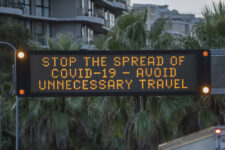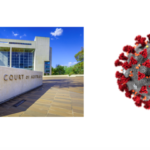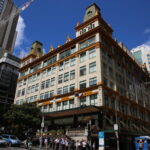The Latest COVID Rules Relating to New South Wales Residents

Just as Victoria is easing restrictions, Queensland, Western Australia and Tasmania have reintroduced tough border restrictions for New South Wales in the wake of new Covid cases being detected in our state.
And as usual, different rules for different jurisdictions can mean confusion.
Tasmania and South Australia
Anyone who has been in a ‘hotspot’ or a ‘high risk area in New South Wales is now prohibited from entering Tasmania.
South Australia has also taken this approach. All people, including essential travellers and SA residents who have been at one of NSW’s Covid exposure areas are prohibited from entering the state.
Covid exposure areas are listed on the NSW Health website, and currently include a number of locations in greater Sydney, Dubbo and Coonabrabran.
Can I visit Queensland?
Queensland is itself battling a new outbreak, believed to have been brought into the state by a couple who left Victoria to avoid lockdown last month.
The state now requires anyone that is entering its borders to fill out a travel declaration.
The new Queensland system which came into effect at 1am on Saturday 19 June, is different from what it’s been in the past.
This time. Queensland has duplicated Victoria’s ‘traffic light ‘system, which is where interstate travellers and arrivals, including returning residents, are required to complete a form before being issued with an entry pass.
A red pass will be issued when a person declares having entered a close contact site. These people will be prohibited from entering the state.
An amber pass will be issued for anyone who has been to an exposure site. Recipients of this pass will be expected to follow testing and quarantine conditions on arrival.
To understand the difference between ‘close and causal contact’ sites, read more here.
A green pass will be issued to those who have not been near a ‘Covid site’. These people will be permitted to travel freely throughout the state.
However, the border remains firmly shut to Melbourne.
Western Australia
Western Australia is asking all residents who arrived in the state between 9 and 16 June to check if they were at one of the Sydney exposure sites.
These people must be tested and quarantined for 14 days from the date of exposure.
However, given that new cases are emerging in Sydney, this advice is expected to change in the coming days.
Masks mandatory on public transport
Currently in New South Wales, there are two locally acquired cases and 39 cases from overseas.
‘Active Cases’ are defined as those which have been identified and are now in quarantine.
In order to contain the latest outbreak, Premier Gladys Berejiklian and The Chief Health Officer Kerry Chant have instated new public health orders.
Masks are mandatory on public transport in Sydney, and police can issue a $200 fine for anyone not wearing one. Masks have been ‘strongly recommended’ indoors and at events where social distancing is difficult.
Other rules include:
- A person who is not a NSW resident cannot enter NSW if they have been to a close contact place.
- A person who has been to a casual contact place is permitted to enter NSW only if they have had a negative COVID-19 test result, after they have become a casual contact.
- A person in NSW who has been to a close contact place must self-isolate for a full 14 days since the time and date listed in the notice of concerns.
- A person in NSW who has been to a casual contact place, must self-isolate until they receive a negative test result for COVID-19, taken after they have been to the venue at the date and time listed.
- There are provisions to allow a resident of the ACT to transit through NSW to directly return to the ACT.
Fines for failing to comply with a Public Health Order in New South Wales.
It is an offence to not comply with a public health order and you can be given a maximum penalty of imprisonment for 6 months and/or a penalty of up to $11,000, plus a further $5,500 fine each day the offence continues.
Corporations that fail to comply with a direction are liable to a fine of $55,000, plus a further $27,500 fine each day the offence continues.
On the spot fines can also be issued:
- $4,000 for a breach of clause 6 of the Public Health (COVID-19 Border Control) Order 2020 – failing to provide or falsifying information to an enforcement officer
- $5000 for a breach of the Public Health (COVID-19 Spitting and Coughing) Order (No 2) 2020.







